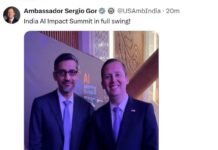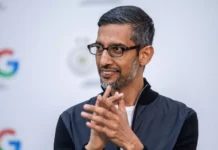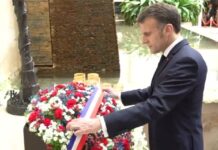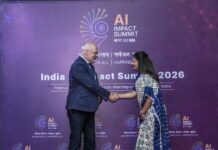
NEW DELHI: Bilateral trade, defense and security cooperation besides energy and higher education would top the agenda of talks between Indian leaders and US Secretary of State John Kerry who arrives here on Sunday for the India-US strategic dialogue.
India will also seek from the US information on the opening of a Taliban office in Qatar besides putting across it concerns about the H1B and L category visas that has raised concerns among the Indian industry, especially the IT sector.
The issue of market access, nuclear liability bill and American National Security Agency’s internet snooping program are also likely to be discussed.
Kerry, who will be undertaking his first rpt first visit to India since his appointment as Secretary of State five months ago, will also co-chair India-US Higher Education dialogue.
Besides co-chairing the strategic dialogue with External Affairs Minister Salman Khurshid, Kerry will also meet Prime Minister Manmohan Singh.
Kerry is leading a high-powered delegation that also consists of the US Energy Secretary, NASA Director besides US military chief for the Pacific region Admiral Samuel Locklear and top officials from the State Department and Homeland Security.
This is the “first high-political interaction in the second term of the Obama presidency,” Vikram Kumar Doraiswami, Joint Secretary AMS (Americas) Division in the Ministry of External Affairs said.
“We will look at having a detailed conversation, more or less around four broad thematic pillars. One would be bilateral relations which will cover the matter of economy, security aspects of our relations. It would also cover energy.
“The other would be the detailed political consultations that we have with the US on regional and other issues. The third major pillar would be global issues…including the evolution of regional architecture in Asia. That is the broad format in which we would have these discussions,” Doraiswami said.
MEA Spokesperson Syed Akbaruddin said “on the bilateral side, the focus will be on expansion of cooperation in the area of defense and security, trade and investment, science and technology, green energy and environment”.
He added it was expected that following the discussions, several new initiatives to strengthen bilateral cooperation in these areas in particular will be identified. Describing Indo-US relations as “one of our more intense and more sort of in-depth partnership”, Doraiswami said Strategic Dialogue is the premier mechanism in the dialogue architecture between the two countries.
He said the dialogue was both an opportunity to carry out “some stocktaking of the relationship, what has happened since the dialogue last year and also to try and set a new vision for what we expect to do in the next remaining six months of this year and first half of next year before the next round of talks”.
The strategic dialogue would be held on Monday while the India-US Higher Education dialogue on Tuesday before his departure on the same day.
During his stay in Delhi, Kerry will also deliver a policy speech on bilateral and regional issues and meet young leaders and innovators at an event highlighting US-India cooperation on clean energy, climate change, science and technology, and poverty alleviation.
Kerry’s India visit is part of a 10-day Asia trip, beginning in Doha from June 22 where he is scheduled to meet with senior Qatari officials to discuss bilateral and regional issues.
Unlike his predecessor, Hillary Clinton, who had visited other Indian cities besides New Delhi during her three trips to the country, Kerry would be staying in New Delhi only.
Asked if the issue of cyber security will be discussed especially in context of recent reports that India was the fifth most tracked country by the American intelligence using a secret data-mining program to monitor worldwide internet data, Doraiswami said “cyber security is part of our dialogue architecture”.
“It is part of the Homeland Security Dialogue. We also have a detailed interaction between the national Security Council on our side with the American side. So, this is certainly an opportunity to take up all issues on our agenda with them”.
The US and India are also keen to engage more in the higher education sector especially in context of creating skills.
Speaking on energy cooperation, especially that related to shale gas, he said “shale gas is a very important part of what we want to talk to the US about. We are very interested in the opportunity to expand our energy cooperation…
“Our interest in hydrocarbons is strong now as the US is on its way to become the net exporter of energy”. . Asked about the US concerns over copyright issues besides other trade-related matters, he said India was quite happy to discuss any issue Washington wants to table on trade and economic matters.
He added “there are ample issues to discuss on matters that might have risen in bilateral trade and economic relations which I must emphasize are on both sides. There are market access issues that we have and those that they have. We can clearly discuss things that we think are areas of divergence and areas of convergence and find solutions”.
Doraiswami also said issues related to agriculture, space will also be discussed. He said if the US has any questions on the nuclear liability law, India would be more than happy to clarify them.
Asked about reports that India has sought temporary custody of November 2008 Mumbai attacks convicted terrorist David Headley, he said “let us be clear about it. We have sought the extradition of both (Headley and Tahawwur Rana) these individuals to start with. We will wait for American response before we look at other options”.
Replying to a query on whether India will raise the issue of visa, he said “we are not raising it as a visa issue. We recognize the point that it is every country’s sovereign rights to decide whom they allow, how many people they allow and what format they allow. The question that we are concerned with is the specificity of US laws that apply to temporary movement of high-skilled personnel under what is called HIB visa and movement of people on inter-company transfers which are L category visas”. -PTI






